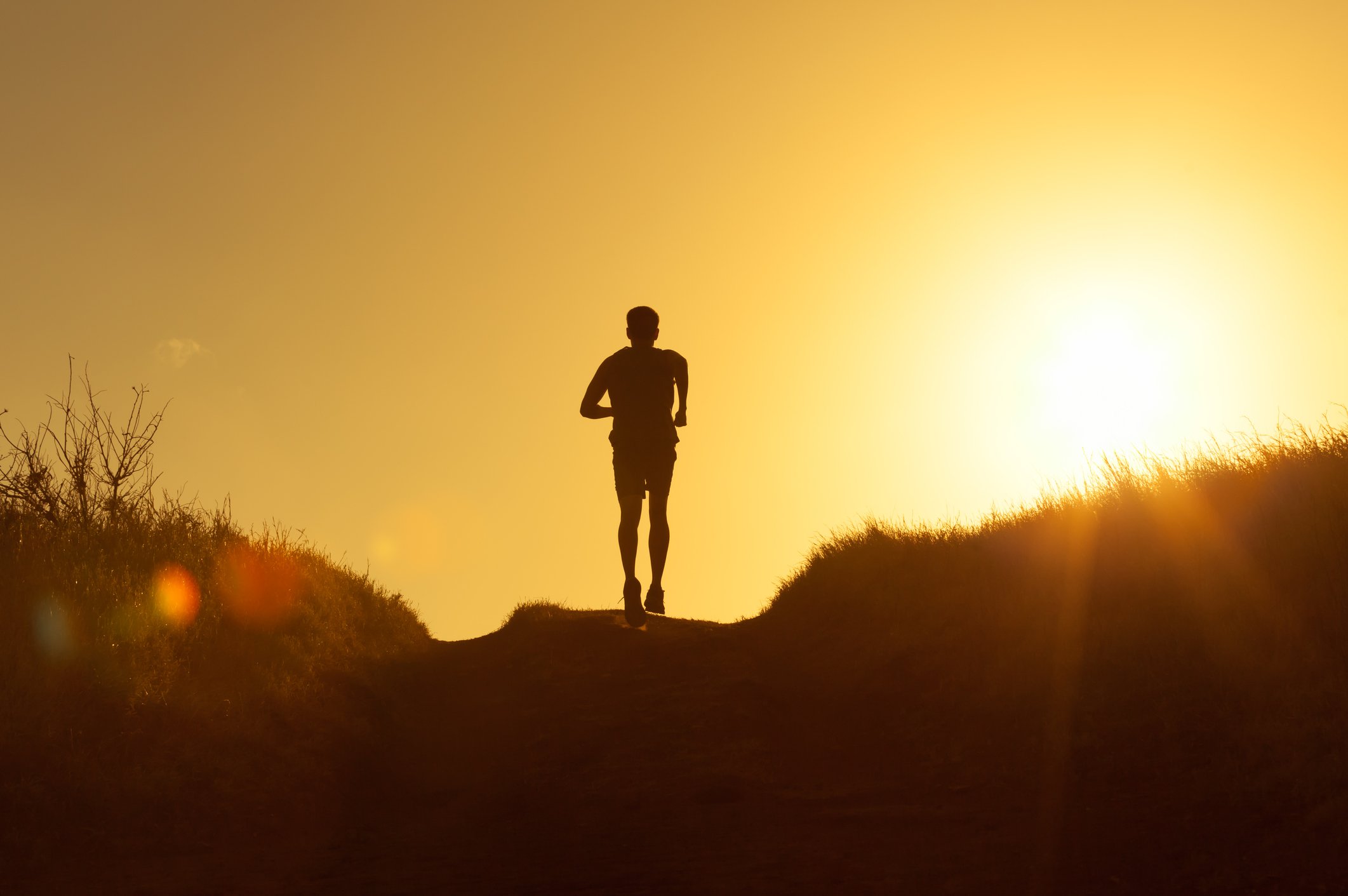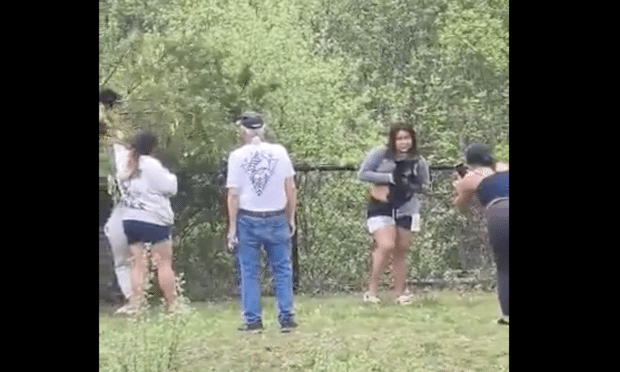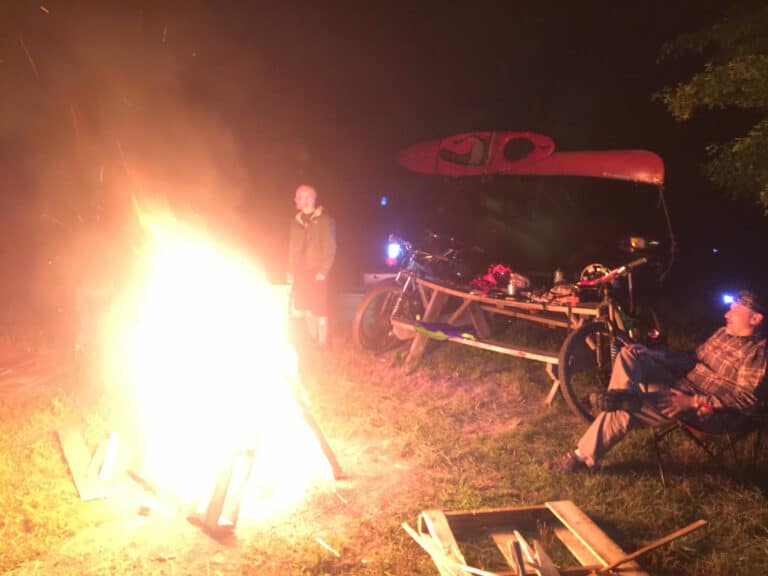As a white guy, I get a big head start—and I don’t have to worry about being shot.
My runs are usually the best part of my day—when my body unclenches, my mind relaxes, and my thoughts can wander freely. Sometimes I think about work problems, or fret about my kids, or replay a recent spat with my spouse. But never once have I worried about being killed because of the color of my skin. Running without fear is a luxury of being white.
Ahmaud Arbery was a runner, too. He was running through a white neighborhood in Brunswick, Georgia, when two white men attacked him and shot him twice in the chest.
Just a few years ago, I also went for an afternoon run in Brunswick while traveling through the area. It was a rather unmemorable five-mile slog in the sticky south Georgia humidity. But as a white guy, never once in those five miles did I fear for my life.
I am outraged that Arbery was killed—and that it took two months and a leaked video for authorities to arrest the men who shot him. I am even more infuriated that this keeps happening.
But my outrage has not spilled into any kind of meaningful action. Like many runners, I ran a token 2.23 miles in memory of Ahmed Arbery (he was killed on February 23). But I have not taken to the streets. I have sat at home and watched others put their lives on the line to demand change.
Only now am I realizing how much I have benefitted from white male privilege all of my life. I was generally aware of the unspoken benefits of being a white dude, but only recently have I reckoned with a hard truth: as a white male, I had a ridiculous head start. My white maleness also gave me the inside lane on schools, scholarships, and careers.
For a long time, I told myself a different story: I had worked hard to earn everything I achieved. I come from a blue-collar, working class family, but I pushed myself in school and landed a scholarship to an elite college. But looking back, if I am honest with myself, I have to admit: I didn’t earn most of my success. Mainly, I just showed up and followed the rules. I didn’t see all of the other barriers that non-whites faced while I breezed through school.
Back then, my friend Sidney was also on the track team. He wore the same used running shoes all four years. He often showed up to the starting line hungry. And he still kicked my ass. I went on to college. Sid went back to the inner city. Why? Sid worked and trained harder than me—and everyone else on the team. But I was whiter than him.
A few weeks ago, I called Sidney. I was nervous, but he put me at ease. We laughed about our old coach and reminisced about our relay team that almost made it to state. And then Sid remembered something that I had long forgotten: we were stretching partners. Every day during warmups, each of us would lift the other’s leg and stretch it until our hamstrings were shaking. After a few painful seconds, our muscles would adjust, and we could push the discomfort just a bit more. I saw it in my mind again: a black kid and a white kid, stretching outside our comfort zones, pushing one another to go a little further.
But for most of my life, I have stayed comfortably cocooned in my white bubble. I feel immense guilt for being a white male who has inherited immense privilege and opportunity while doing relatively little to address racial injustice. That guilt is heavy. But it’s nothing compared to the weight that people of color continue to endure.
Sure, I have organized a few feel-good events helping African American kids experience the outdoors. But truthfully, I haven’t done all that much to address racism. Here at the magazine, we’ve hired very few people of color in 25 years.
I could have said or done something about that.
I used to tell myself that race wasn’t my problem. I agreed that racism was wrong and expressed the appropriate level of indignation during racist flashpoints, but I had bigger problems to tackle, like species extinction and climate change.
But I am starting to realize that the key to addressing most global problems is to tackle the injustices at their core. The best way to save species is to keep indigenous people on their land. The best way to tackle climate change is to prevent polluters from targeting communities of color. Racism is at the root of most of our problems.
I am even more ashamed of my white heritage and the atrocities my ancestors have committed. No, that wasn’t me who did those things—but like it or not, I have benefitted immensely from genocide and slavery, and I have never made any reparations. White males like me have enjoyed over five hundred years of power and privilege on this continent. And we’ve generally fucked it up. It’s a space for people of color to take the lead.
Let’s be clear, though: it’s not just up to people of color to make change happen. It’s up to me—and all white folks—to do the hard work, starting with ourselves. I have to acknowledge white male privilege. And I have to acknowledge that I am a racist, because I am part of a racist, white supremacist system from which I continue to benefit.
I am sorry. I am so immensely sorry.
But the work can’t end with an apology and a phone call to my one black friend from high school. Racism is embedded in the system that white people have created. The very least I can do as a white guy is to help fix what my people have broken—or tear it down and replace it with something better.
I don’t know what that will look like or how to get there. I don’t have the answers, and especially as a white man, I should stop pretending that I do. Instead, probably the best thing I can do is to shut up and start listening.
Cover photo courtesy Getty Images








